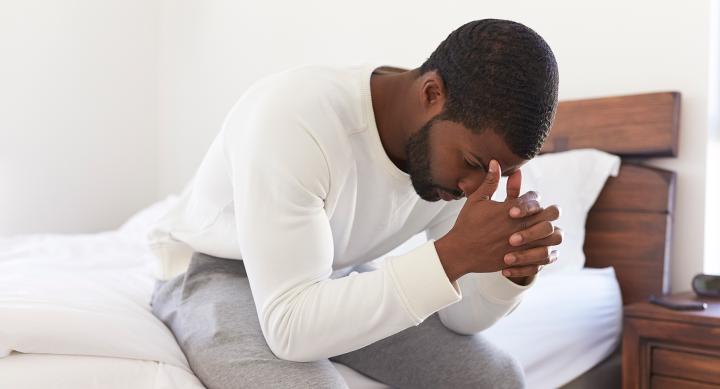
In 2018 more than half of the US population reported feeling alone or left out, according to a nationwide survey of over 20,000 US adults. Surprisingly, those ages 18-22 were the loneliest group, with worse health than older generations. For more information read the "New Cigna Study Reveals Loneliness at Levels in America."
During this pandemic many young adults find themselves living at home with family or holed up in an apartment on their own. Disrupted routines, reduced autonomy and lack of physical connection with friends can lead to severe feelings of loneliness.
While it is normal to feel moments of loneliness, fear and anxiety during this time of physical distancing, continued and long-term loneliness can cause more serious mental and physical health problems, such as depression, anxiety and impaired immune function. This is a major concern, because levels of happiness among teens and young adults now predict their quality of life and productivity years into the future.
Here are 7 main ways to help combat loneliness among people of all ages during this time of physical distancing:
Ask about Loneliness
Health care workers and anyone trying to support loved ones, friends, and members of the community should ask about feelings of loneliness among people of all ages to identify those most at risk.
Practice Being Grateful and Focusing on Others
Focus on the people and things in your life you are thankful for. Think about and reach out to others who may also be struggling, as acts of kindness help us feel better and less alone. Doing something positive for yourself and showing self-gratitude by appreciating what you have done, is another way of helping you establish strong mental well-being both now and in the future.
Strengthen Social Connectedness
Foster genuine personal relationships, including faith and spiritual connections. Make phone calls or use social platforms to foster meaningful conversations with others. Take some time to reach out to someone you haven’t spoken with in a while and let them know how much they mean to you. For people of faith, this may be a time to deepen your connection with your higher power and religious or spiritual community.
Feel Your Emotions and Write Them Down
It is important to give ourselves permission to feel the full range of emotions we are having right now. Sharing deep emotions and writing from the heart can improve our immune response and help us feel better. Pushing away strong emotions takes a lot of mental energy and places more stress on the mind and body. Expressive writing helps us better understand and release our thoughts and emotions, which can lead to increased feelings of well-being and happiness, especially when shared with others. Read the article "Writing as an antidote to loneliness."
Move and Dance to Music
People who are lonely tend to be less active, and both lead to increased risk for chronic health problems. Engaging in some form of dance, physical activity or movement helps people feel better about themselves and improves mood. Going for a walk outside (provided you feel safe) or finding an online exercise, movement or yoga class to take with others can enhance feelings of connectedness. Listening to uplifting or comforting music can regulate the nervous system when feeling alone or blue. Visit The Awesome Music Project (AMP) for more information.
Do Things that Bring You Joy
Doing small things that bring you joy in the moment can reset your brain from over focusing on loneliness. Make a list of things you can do, under the current circumstances, that make you smile, laugh or feel accomplished. Give yourself permission to do at least one of these each day. Listen to "The Happiness Lab" podcast.
Get at Least 7 Hours of Sleep Each Night
Loneliness and poor sleep in young adults seem to be connected. Just like cell phones need daily recharging, quality sleep is needed to enhance our immune system and reduce risk for chronic mental health and physical conditions. More specifically, sleep helps our brain download memories and improves thinking. It also helps us better regulate mood and emotions, making us more resilient against feelings of severe loneliness and depression. If you find yourself glued to movies, tv streaming or social media late at night, you may want to shut it off, as this may be robbing you of much needed sleep and emotional well-being. Read the article "Loneliness in young adults linked to poor sleep quality."
During this prolonged phase of physical isolation, many of us are spending much more time in our own heads, which can be a scary place to be. Let’s use this unique time to connect with self and others through caring, engaging, and meaningful ways. We are hard-wired to rely on one another and we are all in this together.
If you or someone you know might be at risk for harming yourself or others, contact:
- Travis County: Integral Care Psychiatric Emergency Services: 512-472-4357 (HELP)
- Nationwide: National Suicide Prevention Lifeline: 1-800-273-8255
Article by: Jacki Hecht, RN, MSN, Managing Director AMEN Program at the UT Austin School of Nursing